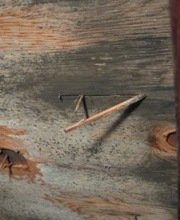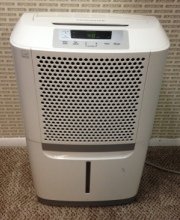Find a Mold Specialist Now
Click or Call, Toll-Free 24/7
Memory Issues From Mold Exposure
Did you know that exposure to mold in the home can cause memory issues, including short-term memory loss? Most people know that mold can cause respiratory problems, like sinus infections and asthma attacks, but many are surprised to learn it can sometimes lead to neurological problems as well, including memory loss, forgetfulness, poor concentration and a shortened attention span. We’ll tell you how mold can affect memory and how to get help if you are experiencing memory loss. You can follow this link to read about other health problems caused by exposure to mold in the home.
Why Does Mold Cause Memory Issues?
Exposure to mold can affect memory for many reasons. Most often, there is probably a combination of factors at play.

Any illness can impair your ability to focus and concentrate. Exposure to mold can cause a myriad of health problems, some minor and some quite serious. All can affect your cognitive abilities, including short-term memory. If you’re sick, you may find yourself distracted or feel you can’t think as clearly as usual.
Many mold-related health problems can disrupt sleep. For instance, if you are coughing all night or having trouble breathing while lying down, you are likely to be sleep deprived. If your illness is keeping you up at night, lack of adequate sleep can impair your memory.
Both over-the-counter and prescription medications used to treat symptoms of mold-related illnesses may have side effects such as drowsiness or insomnia, which may lead to difficulty focusing and remembering things. Corticosteroid medications can even lead to anxiety and depression, both of which can affect cognitive abilities.
In addition to all of the above factors, studies have shown that mold exposure itself sometimes causes neurological problems, including memory loss. You can read more about other mold-related neurological problems.
Talking to Your Doctor about Memory Issues
There are many things that can cause problems with short-term memory. While exposure to mold is a possible cause, your doctor will most likely want to consider and rule out other possibilities, such as:
- Stroke
- Head injury
- Brain tumors
- Dementia, including Alzheimer’s disease
- Hypothyroidism
- Depression and other mental illnesses
- Nutritional deficiencies, including vitamin B12 deficiency
- Side effects of medications
- Sleep disorders
- Alcoholism and other substance abuse
Your doctor may order a number of tests in order to make an accurate diagnosis, including blood tests and a CT scan or MRI. You may be referred to one or more specialists, as well, for evaluation and/or treatment, including a neurologist, a psychiatrist, a psychologist, an endocrinologist, a sleep disorders specialist or an infectious disease specialist.
Make sure you tell your doctor about all the symptoms you are experiencing, even those that don’t seem related to your short-term memory loss. It might be helpful to make a list so you don’t forget to mention anything. Include when you first noticed the symptom and whether it has gotten worse or stayed the same over time. You might also ask close friends or family members if they’ve noticed symptoms such as forgetfulness and include that information with your list.
Take a notepad and pen with you to your appointments so you can make notes of what your doctor tells you. You might also want to bring someone with you to appointments to make sure you don’t miss or forget any important information.
The necessary treatment will depend on your diagnosis. In addition to whatever medical care you need, if mold is causing your memory issues, you’ll need to arrange to have the mold removed from your home as soon as you can.
For Help with Mold Removal
If you have experienced memory loss and other serious mold-related health problems, your doctor may recommend against trying to remove the mold from your home yourself. Doing so would further expose you to the very mold that is affecting your memory and making you sick. You can schedule a free in-home consultation with a mold removal expert to discuss your options. There’s no cost and no obligation on your part, so you have nothing to lose. Even if you opt to do the work yourself, you can benefit from some expert advice from an experienced professional. Be sure to ask how to protect yourself during the cleanup process and how to make sure the mold doesn’t return in the future. Follow this link to get a list of local mold removal professionals offering free consultations.
Return From Memory Issues To Our Main Mold Health Issues Page




